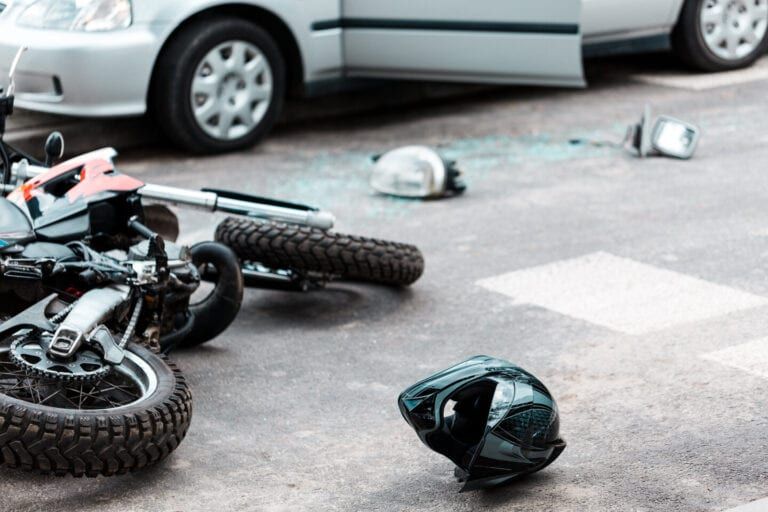7 COMMON MOTORCYCLE CRASHES AND HOW TO AVOID THEM

Although motorcycles are inherently more dangerous than cars, crashes involving motorcyclists are often caused by mistakes committed by drivers—not motorcyclists. As a motorcyclist, it’s imperative that you ride defensively and watch out for driver errors. If you do become involved in a crash, a motorcycle accident attorney can help you seek compensation.
Left-Turn Crashes
One of the most common types of motorcycle accidents occurs when a car traveling toward you makes a left-hand turn in front of your bike. You can avoid it by being particularly alert and cautious while riding through intersections. Watch out for indicators that a driver may be turning left, such as a swiveling head, turning wheels, and a left-turn blinker. Slow down and get ready to brake.
Lane Switching Accidents
Drivers should check their blind spots before switching lanes, but they often don’t. This behavior can have disastrous consequences if a car tries to merge directly into you. Avoid it by staying out of drivers’ blind spots; either slow down or speed up to allow drivers to more easily see you.
Head-On Collisions
Head-on collisions can occur if a driver or a rider is distracted, intoxicated, or asleep at the wheel. Never ride drunk, keep your eyes on the road, and watch out for signs that opposing vehicles are going to swerve into your lane. Be ready to swerve to avoid them.
Unseen Road Hazards
If you’re going too quickly around a blind corner, hitting a patch of gravel or sand can cause you to lose control. Slow down before navigating all turns and watch the road ahead for hazards.
Rear-End Collisions
Drivers may misjudge speed and distance. If you’re stopped at an intersection or in a traffic jam, watch your mirrors to monitor vehicles approaching you from behind. Be ready to navigate to the shoulder if it looks like a vehicle isn’t slowing down quickly enough.
Opened Car Door Crashes
Never ride your bike between a lane of stationary traffic and a row of parked cars. A driver may open the door of a parked car right in front of you.
Lane-Splitting Accidents
Lane splitting occurs when motorcyclists ride between lanes of stopped or slowed-down traffic. In Florida, this is illegal—and with good reason. Lane splitting is a good way to wind up in the hospital because drivers aren’t on the lookout for riders traveling within inches of their vehicles. You can easily avoid these accidents by simply not traveling between lanes.
In the Port Charlotte area, injured motorcyclists trust the law firm of Goldman, Tiseo and Sturges, P.A. Our motorcycle accident attorney is AV-rated by Martindale-Hubbell. Our homegrown team provides personalized service to each of our valued clients. Call (941) 625-6666 to request a free initial consultation with a motorcycle accident attorney.
Share This Post:






